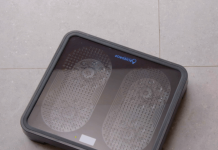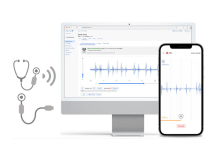Pulse Biosciences has reported positive results from a first-in-human feasibility study evaluating its nanosecond pulsed field ablation (nsPFA) technology for the treatment of atrial fibrillation (AF).
Data from the study (NCT06696170), which involves an analysis of 30 out of the total 77 patients treated, demonstrated a 100% lesion success rate with conduction block. Pulmonary vein isolation at the three-month post-ablation procedure checkup had a success rate of 92.4%.
Related: Patient enrollment underway for STIMIT’s diaphragm neurostimulation device
Pulse Bioscience’s CellFX is already approved in the US and Europe for the ablation of soft tissue in percutaneous and intraoperative surgical procedures, but the current trials aim to provide data to support a further indication in AF.
CellFX delivers nanosecond pulses of electrical energy to abnormal tissue associated with AF. Ablation works as part of an approach called cardiac remapping by blocking pathways that conduct faulty electrical signals responsible for an irregular heartbeat.
The technology is earmarked as an advancement over its counterpart – thermal ablation – in the treatment of AF, which affects around 59 million individuals worldwide.
Pulse Biosciences CEO Paul LaViolette said: “We believe nanosecond PFA represents the next-generation energy modality that will improve the safety, efficacy, and efficiency of AF ablation through a more straightforward and clinician-friendly procedure.”
While Pulse Biosciences did not comment on data relating to the primary endpoint – the rate of primary safety major adverse events (MAEs), it did report one primary serious adverse event of cardiac perforation and two adverse events of vertigo and creatinine elevation. The US company added that all events were resolved without resulting in further disease or injury.
“This novel technology offers a unique user experience that has the potential to improve workflow with a pliable catheter for nimble and precise positioning in the anatomy, and combined with the differentiated energy, enables consistent, durable transmural ablations,” said Dr Vivek Reddy, who is an investigator on the trial and a consultant to Pulse Biosciences.
LaViolette added that the company remains on track to begin an investigational device exemption (IDE) study this year for clinical validation.
PFA systems have been available in Europe since 2021, with Medtronic, Johnson & Johnson (J&J), and Boston Scientific all having systems marketed in the regions. The first approval in the US came via Medtronic’s PulseSelect in December 2023, with Boston Scientific winning approval for its FaraPulse device one month later. This week, Boston reported positive results from a trial evaluating the system in further heart rhythm conditions.




